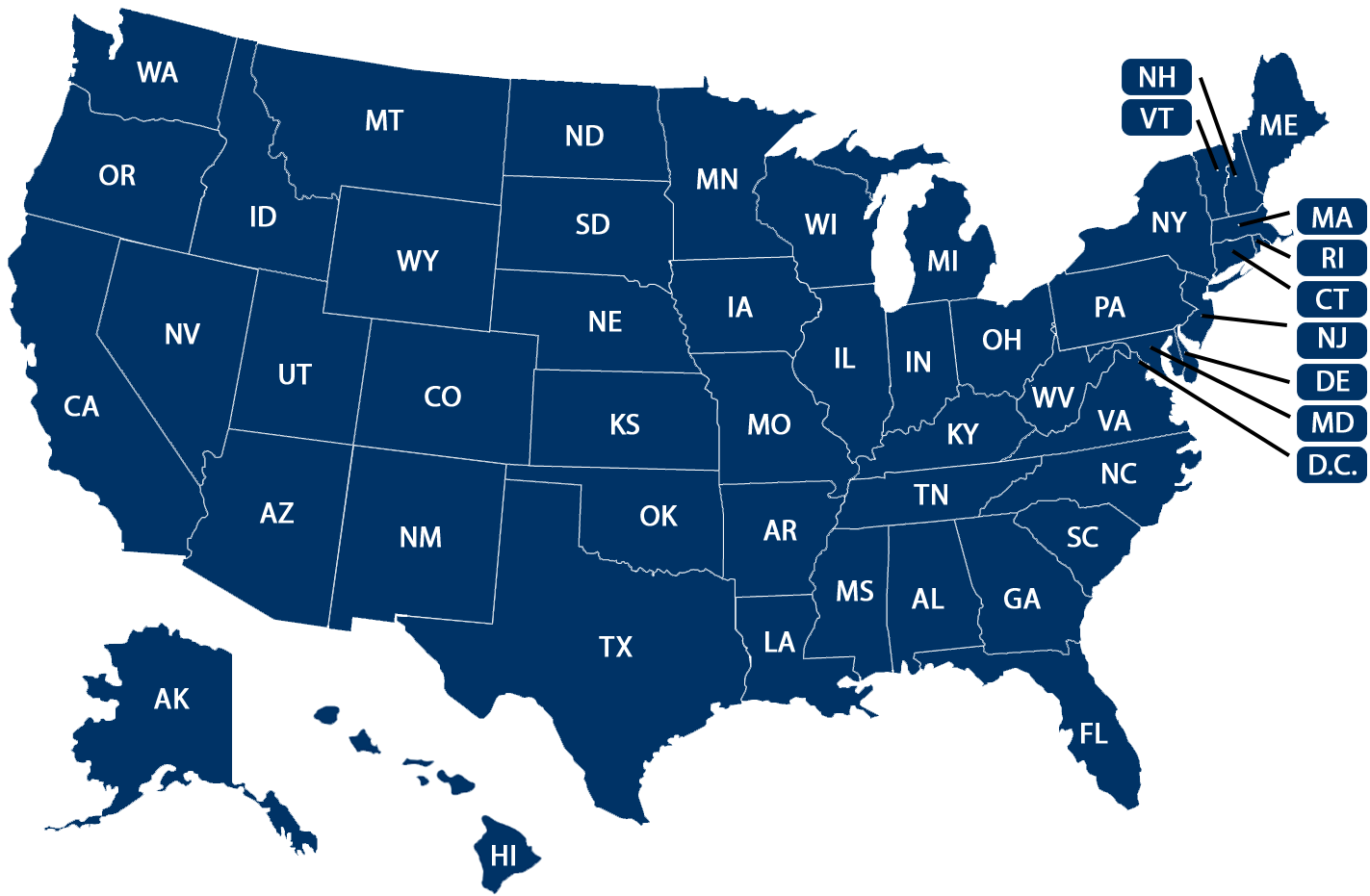In this article we're going to pull back the curtains, so to speak, exposing millions New Window, quite possibly even billions of dollars with what are known as tax sale overages, tax sale overbids, excess funds, or tax sale claims.
This little known and little understood idea of tax sale overages or tax sale overbids, if executed correctly, has the potential of providing an additional source of income. Until now, tax sale overbids have largely remained a secret, only known by a small-percentage of investors.
The truth of the matter is most of the people that do know about them would prefer to keep everyone in the dark.
In this article we will discuss the tremendous possibilities with what are known as tax sale overages or tax sale overbids.
In hundreds, even thousands of counties across United States are millions, even billions of dollars in unclaimed funds.
According to the people at NAUPA at least $32.877 billion dollars is currently being safe-guarded by state treasurers and other agencies for 117 million accounts.
In many cases, the people who have the legal right to claim these tax sale overages or tax sale overbids don't even know that they are owed to them, let alone how to get them.
But wait, where did all this money come from and more importantly why are these people not claiming it?
This may not come as a shock but the people who understand tax sale overages don’t want everyone to know the answers to these important questions.
“Unclaimed property” or its more common title of “abandoned property” pertains to inactive accounts where there has been no contact with the owner for a year or more.
Why are the people who are owed this money not claiming it?
The truth is they (the people who have this money) really don’t want the estranged beneficiaries to have it. The fact is they would rather keep it for themselves.
It's absurd!
The money belongs to these people but, in my estimation, the government makes little effort to return the money to its rightful owners.
Millions of people are entitled to receive this "unclaimed property" or "tax sale overages" as I like to call it but the majority of them are largely unaware that this money even exist.
Tax sale overages generated from the sale of tax delinquent properties represents a large amount of the unclaimed funds which are continually being transferred to the government and remain, waiting to be claimed. What's more, nine out of ten times this money is never collected eventually becoming the sole property of the government. Think of it like free money.
People escheated out of their money
Here's how it works. In thousands of counties all across the United States, local governments have millions of dollars in outstanding property taxes. Local governments rely on the revenue generated from real estate property taxes to fund daily services.
Unpaid real estate taxes create a serious cash-flow problem for local governments and municipalities.
If local governments are unable to collect real estate property taxes, they are also unable to fund important government services like police protection, public schooling, and medical services.
Government delinquent tax sale auctions
To solve this cash-flow problem, local governments sell these tax-delinquent properties at public tax sale auctions. Investors purchase these properties from the county.
In many cases, these tax delinquent properties are sold for an amount in excess of the amount needed to satisfy the delinquent taxes.
For example, let's say a particular property has a $2,500 tax bill and is sold to the highest bidder at the delinquent county tax sale for $75,000. The tax sale overage or overbid would represent that amount in excess of the delinquent taxes owed. So in this case the tax sale overage or over bid would be $72,500.
Here's how I calculated the tax sale overage or overbid due the delinquent property owner:
Property Sold Amount: $75,000
Delinquent Taxes: - $2,500
========================
Tax Sale Overbid: = $72,500
What happens to the tax sale overages or tax sale overbid in the example above?
Many states have enacted laws directing the transfer of these funds to the county where they will remain for a period of time. In addition, they are required by law to notify the property owner (yes, the one who just lost their house) of these tax sale overages or tax sale overbids.
Notification of excess tax sale overbids
Generally, the county will send one and only one letter to the last address on file. More often than not, the letter is sent to the address of the property that was just sold at the delinquent property tax sale.
A natural question is why don't these people claim the money? The answer is in most cases these individuals have not filed a change of address so they never receive the letter.
Even if they have received the letter, most are suspicious even fearful to respond. Let's face it, they lost their home for not paying their bills.
More often than not they fell prey to hard times. It could've been divorce, job loss, or heaven forbid some serious illness. No doubt, bill collectors are trying to locate them and they just want to forget about everything and start over.
Let's move on. After a period of time, if that money is not claimed, and the owner cannot be located, eventually these tax sale overages or tax sale overbids are classified as "abandoned".
Common law defines personal property which has left the possession of its rightful owner without having directly entered the possession of another person "abandoned".
After a period of time the "abandoned" property is escheated (irrevocably transferred) to the government.
It's important to be aware that the escheating process will vary from state to state because it is regulated by individual state laws.
Alabama tax sale overbids, for example
In May of each year Alabama tax collectors sell tax lien certificates to the winning bidders at the delinquent property tax sale. The opening bid is just the back taxes.
If competition is steep, Alabama employs a competitive bidding system where the face amount is raised with each successive bid.
The original owner has (3) three years to redeem his or her interest in the property. To redeem or recover his/her property, the original owner must tender the amount the investor paid to purchase the tax lien certificate plus 12% per annum.
According to (Sec. 40-10-29 and Sec. 40-10-30) after the (3) three-year redemption period has expired the judge of probate must execute and deliver to the purchaser...a deed to each lot or parcel of real estate sold to the purchaser and remaining unredeemed.
In instance like these, it is not unusual for tax lien certificates on good properties to be bid up to 60% or more of the property's value.
Disposition of excess arising from sale. According to (Sec. 40-10-28) the proceeds or excess funds generated from the sale of real estate remaining after satisfying the amount of the decree of sale, costs, fees, subsequently accruing, are to be paid to the owner, or his agent, or to the person legally representing such owner, or into the county treasury.
Further more (Sec. 40-10-28) says that if such tax sale proceeds, overages, or excess funds are not requested within (3) three years after the sale of the property such money shall thereafter be treated as part of the general fund of the county. In addition, any time within (10) ten years after the funds have been deemed as part of the general fund of the county, on proof made by any person that he is the rightful owner of such excess money order the payment thereof to such owner, his heir or legal representative else such excess funds shall become the property of the county.
Presumption of abandonment. Furthermore, according to (Section 35-12-72) “(a) Property is presumed abandoned if it is unclaimed by the apparent owner during the time set forth below for the particular property: (13) Property held by a court, government, governmental subdivision, agency, or instrumentality, one year after the property becomes distributable. …"
For example, if a property was valued at $200,000 and had $2,500 in delinquent property taxes, it is not too uncommon for the tax lien certificate on that property to sell for $75,000 especially if the tax sale overbid draws interest.
If the tax sale overage or tax sale overbid is not claimed within four (4) years from the date the original tax lien certificate was sold at the delinquent tax sale auction those funds are irrevocably transferred (escheated) to the county.
Indiana tax sale overbids, for example
Let's look at another example using the same figures except let's say that it took place in the state of Indiana.
Across Indiana County Treasurers sell tax lien certificates at public tax sale auctions to the bidders who pay the minimum bid being the amount needed to satisfy the delinquent property taxes or who have the greatest bid in excess of the amount needed to satisfy the delinquent property taxes.
Depending on when the property owner exercises his/her right to redeem, the tax lien certificate holder will receive a 10% to 15% penalty on the minimum bid and 10% on the tax sale overage or tax sale overbid.
If the property owner does not exercise his/her right to redeem/recover the property then the tax lien certificate holder can apply for the deed to the property effectively taking ownership of the property for the amount he/she paid to purchase the tax lien certificate.
Now back to our example. If the property owner redeems, he will pay a 10% to 15% penalty on the $2,500 in delinquent property taxes. In addition, he will pay 10% per annum simple interest on the overbid amount of $75,000.
At this point the county would send a letter notifying the investor that his/her tax lien certificate had been redeemed and that he/she would receive what he/she paid to purchase the tax lien certificate plus penalties and interest.
Now back up, let’s say the property owner fails to redeem the tax lien certificate. So, what happens to the overbid of $72,500?
Well according to [IC 6-1.1-24-6.4] the county treasurer is instructed to apply the overbid to (3) ‘a separate "tax sale surplus fund". (b) the: (1) owner of record of the real property at the time the tax deed is issued who is divested of ownership by the issuance of a tax deed; or (2) purchaser of the certificate or the purchaser’s assignee, upon redemption of the tract or item of real property; may file a verified claim for money that is deposited in the tax sale surplus fund. If the claim is approved by the county auditor and the county treasurer, the county auditor shall issue a warrant to the claimant for the amount due. (c) An amount deposited in the tax sale surplus fund shall be transferred by the county auditor to the county general fund and may not be disbursed under subsection (b) if it is claimed more than three (3) years after the date of its receipt.
In theory the county is instructed to distribute the overbid to the delinquent property owner but in reality it rarely ever happens. Like we discussed earlier, the money is transferred to a temporary "tax sale surplus fund" where it waits for a period of time for the owner of the divested property to come in and claim it.
Yes, the county did try to contact the owner by sending one letter to the address on file. However, more often than not that address is the address of the property that was sold at the tax sale. The delinquent owner is most likely not there and has moved on. In addition, he most-likely did not complete a change of address.
According to Indiana statute [IC 6-1.1-24-6.4] , the excess overbid funds are "escheated" (irrevocably transferred) to the county after (3) years time.
The silver lining
Interwoven in all this misfortune, is an incredible opportunity. Imagine receiving checks for simply connecting estranged property owners with the tax sale overbids or tax sale overage which the county is holding on their behalf.
Here's how it works. Working from a home or mobile office users scan the county records, finding large amounts of tax sale overbids or tax sale overages due these delinquent property owners.
Using powerful research tools simplifies the process of locating the individuals entitled to receive these tax sale overbids or tax sale overages.
Once contact with the person who is entitled to receive these funds is made the searcher enters into a "special contingency fee agreement" (drawn up by an attorney) with the delinquent property owner who has legal claim to these tax sale overages or tax sale overbids.
What this means is that the searcher work's on a contingency fee basis. So, if unsuccessful in recovering the tax sale overbids or tax sale overages there is no fee.
Finally, using a "special limited power of attorney" (also drawn up by an attorney) the searcher works with the county, completing all the necessary paperwork needed to transfer, deposit, and disperse the tax sale overbids or tax sale overages according to the terms of the "special agreement".
Everyone is happy, the delinquent property owner gets the money the county is holding for them (money they most likely never knew existed yet desperately need) and the searcher receives a handsome payment for helping them complete all the necessary paperwork to claim and collect these funds.
The searcher is nothing more than a claim processor, working tirelessly to recover the tax sale overbids or tax sale overages due the estranged claimant. In exchange, the searcher could receive a handsome reward for their hard work.
What's exciting is that this is the type of business which can be accomplished from the comfort of a home-office, working just a couple hours a week. Even better, searchers can sleep at night knowing they're helping people who've fallen on hard-times get back on their feet.
It is estimated that all across the country there are billions of dollars sitting in the county coffers waiting to be claimed. What's more most of the time this money is never claimed and is escheated to the county.
A Word of Caution...
In an effort to regulate tax sale overages State legislatures have passed strict laws with respect to tax sale overages and tax sale overbids.
Many states have passed laws that put increasingly strict requirements on the process for requesting the funds while other states have passed laws that place a limit on the amount in finder's fee's agents can receive when assisting in the funds recovery business.
In the state of Washington house and senate legislatures passed House Bill 2428 which prohibits businesses that provide the service of matching unclaimed property (i.e. unclaimed proceeds from property tax foreclosures, assessments, and liens held by counties, cities, and other municipalities) with the owners of the property from charging fees in excess of 5 percent of the value of the property that is returned to the owner.
Under the new legislation contained in HB 2428 the Washington state Attorney General may bring an action to enforce the provisions of the Consumer Protection Act. Furthermore, under the Consumer Protection Act a person may bring civil court action if the person is injured in his or her business or property. The court may, at its discretion, increase the award of damages to an amount not to exceed three times the actual damages sustained.
It is necessary to ensure compliance to state and local laws governing the "tax sale overage and tax sale overbid recovery" business.
In conclusion I would like to offer a word of caution. While it is possible to make a lot of money in the tax sale overage or tax sale overbid business it is important to consult with a legal professional to ensure compliance to all laws with respect to tax sale overages.




